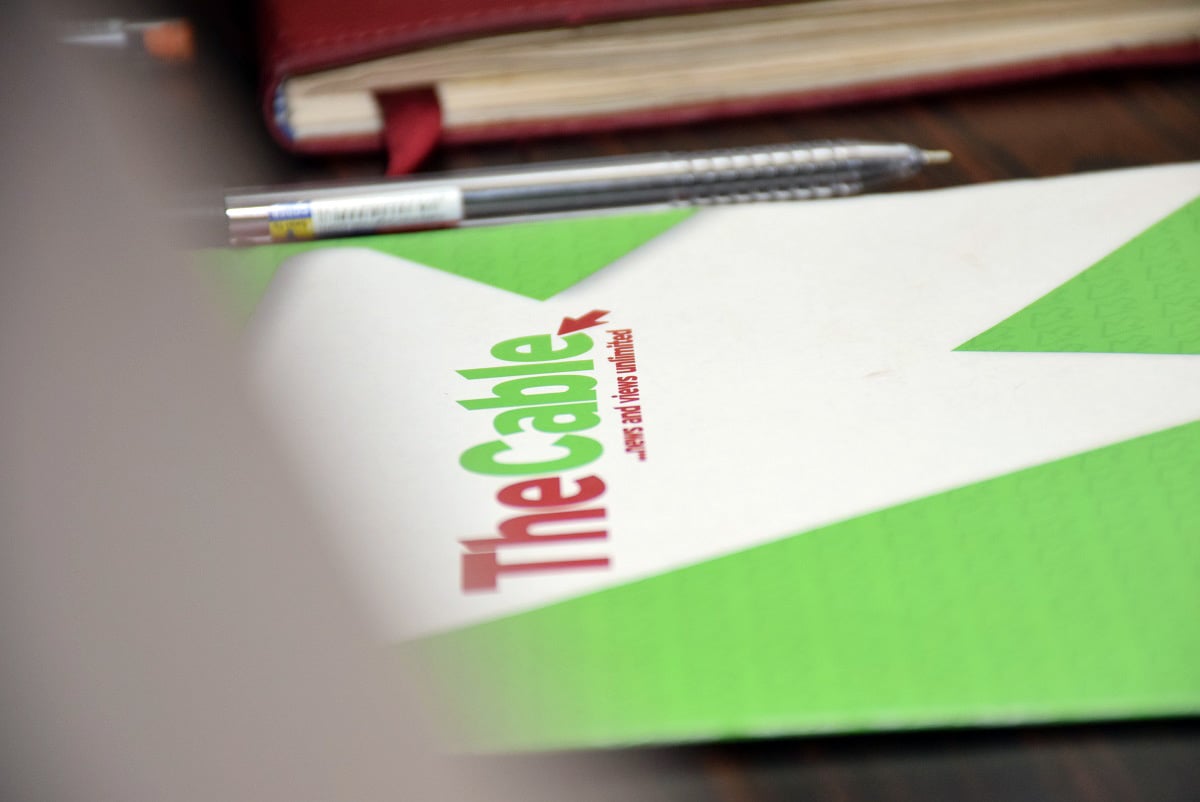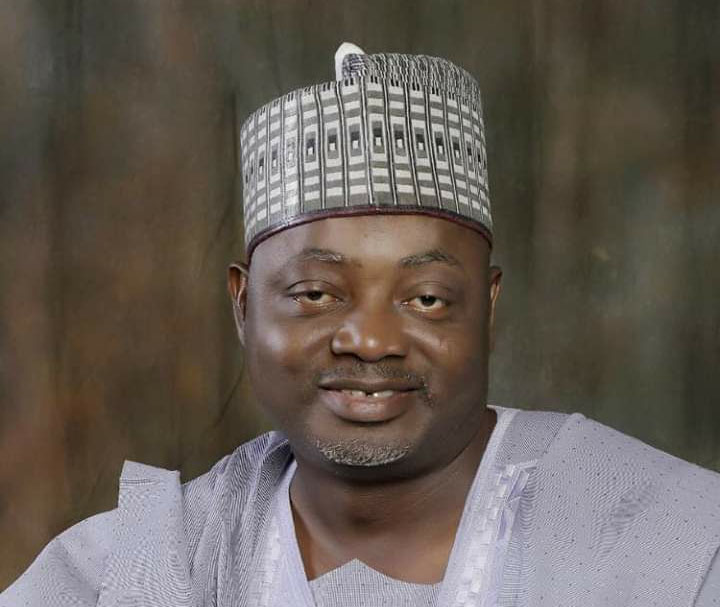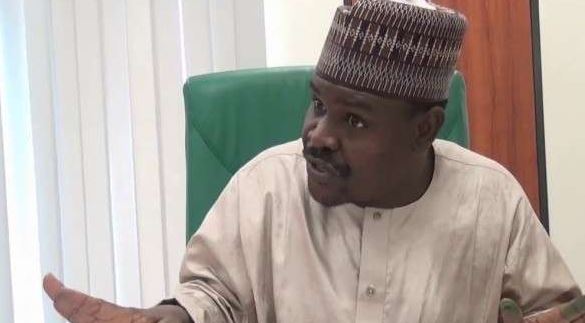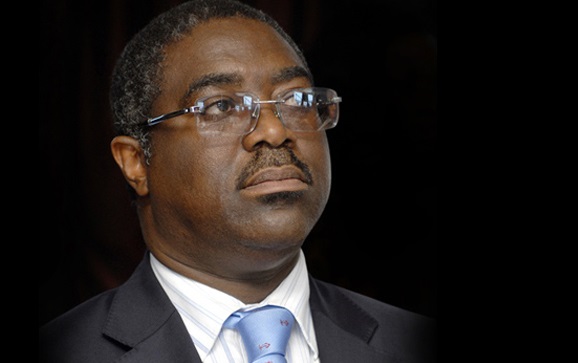In May 2015, shortly after Candidate Muhammadu Buhari won the 2015 presidential election, there was a renewed effort by the Nigerian Army to crush Boko Haram. The army, which was said to have gotten new arms and South African mercenary for the war, was making great progress.
The media recorded many headlines chronicling the progress the army was making at the time. On May 2, 2015, the army, which had rescued 275 women and girls handed them over to the National Emergency Management Agency (NEMA) camps Coordinator in Yola, Sa’ad Bello. The women and girls were relocated, well received at the Malkohi camp in Adamawa state.
I was quite young in mainstream journalism at the time, even though I had written for major national newspapers for about five years before then. But I was willing to dabble into what was considered relatively dangerous by those who had been in the profession for longer. I was — and still is — working with a team of journalists who were willing to go above and beyond to see my dreams come true.
My editor at the time, ‘Fisayo Soyombo, asked if I was willing to go to Adamawa, one of the states worst hit by Boko Haram. I was more than willing, it was in line with exactly what I wanted, and the next day, I was on a flight to Adamawa to speak with the army, the women and girls rescued, and the NEMA staff, who were ensuring rehabilitation of the Boko Haram survivors.
Advertisement
AND SO, THE JOURNEY BEGAN…
Upon arrival in Yola, I went to the NYSC camp in the state, which had been converted to a camp for internally displaced persons (IDP) but was not allowed access to the some of the women and girls kept in the camp. Eventually, I travelled to Malkohi Camp, where I met, interviewed, played and ate with many of the recently rescued women and girls.
Two major takeaways for me was that the women and girls were not safe at the camp, where they obviously didn’t get the best care. Many suffered from ulcer, some had just delivered their babies in Sambisa weeks before the rescue. In fact, Lamin Musa, one of the women who spoke to TheCable delivered her child less than 48 hours before the rescue. The camp didn’t have the best post-natal care.
The second was a disturbing revelation by a teenage girl, who said Boko Haram always knew the itinerary of the army, making victory in the war against Boko Haram impossible. This intelligence problem persists to date.
Advertisement
Thankfully, the army yielded to some of the suggestions at the time, and took a decision to relocate the women and girls from the camp. Few weeks later, Boko Haram attacked the camp and killed seven children in a gory bomb blast. This was sad, but I was consoled by the fact that it could have been worse, if the army did not relocate the women and girls. At this point, it became clear to me that the military needed to work more with the media to avert similar cases.
ARMY BRANDS TheCable AS SUBVERSIVE
By 2016, TheCable’s editor ran a great investigative serial into the plight of soldiers fighting to keep Nigeria’s territorial integrity, and ensure citizens sleep with two eyes closed. His revelations were strikingly fierce. Soyombo found that many of the soldiers who sacrificed all they had to keep Nigeria together were left to the mercy of maggots.
Rather than act to keep our gallant men safe, the military came out to accuse TheCable of “mudslinging and subversion!” Who slings mud with the army? Subversion here is a treasonable offence punishable with death under military regimes. The army accused TheCable of driving a campaign of calumny.
“The attention of the Nigerian Army has been drawn to a 5 part campaign of calumny by ‘The Cable’… No country would tolerate the attitude of subversive elements… especially at the very critical national security situation,” Sani Usman, the army spokesman had said at the time.
Advertisement
THE TEARS FROM RANN
In 2017, the Nigerian military attacked a civilian camp in Rann, Kala Balge local government, killing “52 people”, according to the initial reports. Lucky Irabor, a major general and the theatre commander at the time, gracefully admitted that he authorised the operation based on the intelligence available.
I took yet another trip to Borno, informing the Nigerian military of a possibility of reporting the actual state of things in Rann. The military was not willing to help with movement to Rann. Locals and aid workers also said it was easier to get to Rann through Cameroon than to go via Maiduguri. The only alternatives were to go with the military helicopter or to go with Red Cross trucks, carrying sandbags to make a way to get food supplies to the region.
After scouring various parts of the state, and meeting victims of the military mistake, it became clear that over 100 people were killed — and I obtained the names of all 126 people who died in the attack. TheCable has requested that the families of those attacked be compensated by the military. But only a few have received some form of compensation, which was facilitated by the Victims Support Fund (VSF) and TheCable.
By 2018, Femi Owolabi, an investigative journalist with Cable Foundation, who has deep contacts within the Nigerian army also carried out investigations into many complaints received from officers on the frontline. What he found was startling; soldiers in the battlefront begging for food and donning bathroom slippers to the battlefield, generally highlighting how ill-equipped our soldiers are.
Advertisement
Responding to the report, the Defence Headquarters said “the battlefront is not a playground, what differentiates soldiers from civilians is the ability to endure hard conditions. That is the reality and price of the military profession. There is no easy way.”
President Muhammadu Buhari, on the other hand, ordered an investigation into the welfare of the soldiers. After the investigation, Lai Mohammed, minister of information and culture, said “there is no case of hunger, starvation or begging among the troops fighting in the north-east”. Rather than deal with the issues, the government and the military dismiss the reports. But the soldiers don’t stop complaining.
Advertisement
PROPAGANDA AS A WEAPON OF WAR
My interest in understanding the Boko Haram war has since grown since my first — of numerous trips — to the northeast. For a year at the University of Sussex, I studied all irregular warfare in the 20th and 21st century, and shared a few insights on why we (Nigeria) would not defeat Boko Haram in 20 years. This was aimed at helping Nigerians understand the issues around fighting Boko Haram, and the need to depoliticise the war.
After the publication, I got calls from home and abroad, from the Nigerian military, intelligence circle, and from within the army itself. Everyone had something to complain about – within the army. Need I speak of the issues around promotion and retirement of officers or the local issues around the Boko Haram war, which would keep rearing their heads if we fail to deal with them?
Advertisement
Just last week, the International Criminal Court (ICC) released its preliminary report stating that it had basis to believe that the army had committed war crimes against humanity. TheCable carefully reported the situation after carefully studying the 76-page document sent by the office of the prosecutor at the Hague.
Our dear Sani Usman also took to the media to dismiss the reports, using his 2016 retort; “there is a campaign of calumny against the army”. No sir, there is no campaign of calumny against the army.
Advertisement
Today, from many studies, I understand that propaganda, if well tailored, is a weapon in irregular warfare. But I’d like to insist that you don’t just dismiss the truth and credible sources all in the name of using propaganda as a weapon of war. The media wants the war against insurgency to end as much as you do. We really don’t have to be enemies. Countries, who have defeated insurgencies in the past have always worked with the media to attain victory.
TheCable is not the enemy — let us unite against the real, and common, enemy!
Follow ‘Mayowa on Twitter and other major social media platforms @OluwamayowaTJ
Add a comment







